Barack Obama pulled off quite a trick in his Jerusalem speech – appealing to ordinary Israelis over the heads of their political leaders and cleverly borrowing a line from their national anthem to explain why Palestinians also deserve to be "free people in their own land".
In the biggest moment of his Middle East trip so far, the president displayed a smart combination of emotional and political intelligence in pressing the buttons that matter to mainstream Jewish opinion in Israel (and the US): he referenced Biblical heroes, pogroms, persecution, the Holocaust, Zionism and the old saw about pioneers "making the desert bloom" – all linked to the urgent prospect of making peace. The oratory was impressive; the politics less so.
Obama's effusive pitch embraced every area of unqualified US support for Israel: military, political and economic aid. A quartet of common enemies – Hamas, Hezbollah, Syria and Iran – were vilified and there was praise for "the courage of the Israel Defence Forces, and a citizenry that is resilient in the face of terror" – though no mention of life in Gaza.
The president linked Tehran's nuclear programme to "living in a neighbourhood where many of your neighbours have rejected your right to exist" though he wisely avoided eliding it, like Binyamin Netanyahu, with the Nazi annihilation of six million Jews. Diplomacy remained the best way of dealing with Iran, but "all options" remained on the table.
It was a warm bath of loving attention – all the more remarkable when compared to multiplying calls from Europe and elsewhere to boycott Israel and abandon the 45-year-old notion that a two-state solution to the world's most intractable conflict is achievable or even just.
Israel, he declared to thunderous applause, was "not going anywhere", adding in passable Hebrew: "You are not alone." But he did also warn the country of the need to reverse "an undertow of isolation" at a time of fast-moving change in the wider Middle East. The tone was that of a candid, worried friend.
Hussein Ibish of the American Task Force on Palestine called it a "historic and brilliant speech". But Palestinian and Arab audiences were generally not impressed – not least because the president offered not a single practical proposal to advance the long-stalled peace process (though aides insisted that was never his intention). That Herculean labour will be up to John Kerry once the visit is over.
Still, there is no obvious or easy way to translate the feelgood effect of the speech into practical politics and diplomacy.
"Are violins playing in the background while Obama speaks?" one Lebanese woman asked sarcastically. Others complained of eloquence without depth or substance. Ali Abunimah, an outspoken critic of the Palestinian president, Mahmoud Abbas, and a supporter of the one-state solution, tweeted in anger: "Palestinians yearning for peace live in a tough neighborhood, surrounded by racist settlers and a murderous US-backed sectarian 'army.' Obama's 'history' of Israel is as delusional as his US history which still praises slave-owning, slave-raping founding fathers. This speech will drive liberal Zionists wild because it legitimizes their segregationist desires & dresses them up as 'peace' & 'democracy.'"
Obama did speak of settler violence against Palestinians going unpunished. Otherwise direct criticism of Israel's government was extremely mild: illegal settlements – the core of his notoriously prickly relationship with Netanyahu – were "not constructive" and there was no call for a freeze, as Palestinians demand. But Abbas was explicitly urged to avoid "unilateral" steps such as appealing to the UN – a glimpse of double standards.
Rave reviews of this speech will probably outnumber the very bad ones. But what happens next matters much more than intelligent and honeyed words.
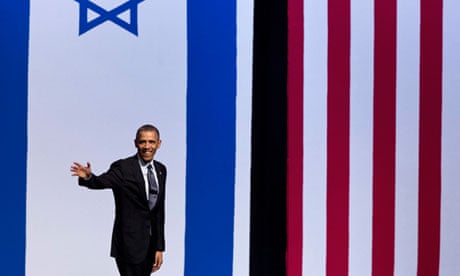
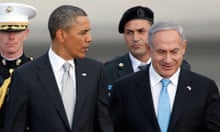
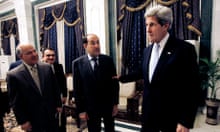
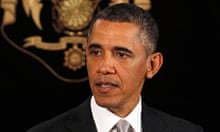
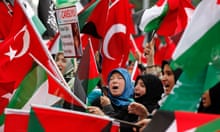
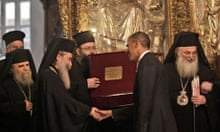
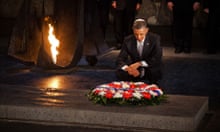
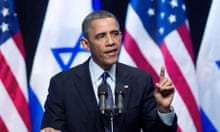
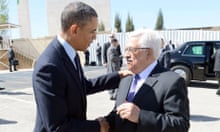
Comments (…)
Sign in or create your Guardian account to join the discussion